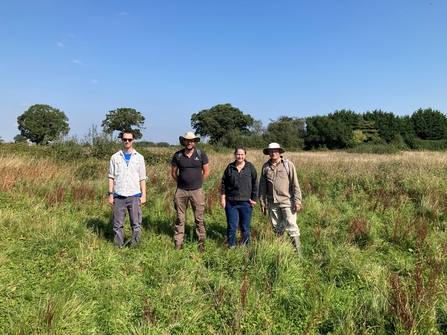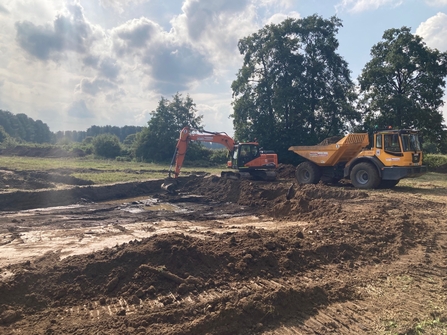Thanks to funding from Natural England's Species Recovery Programme, we will work alongside the Woodland Trust and the Amphibian and Reptile Conservation Trust (ARC) to make more space for wildlife across connected landscapes. Work will focus on the restoration of ice age ponds, known as ghost pingos – which form ideal conditions for pool frogs.
The northern pool frog, England's rarest amphibian, was successfully reintroduced to Thompson Common in Norfolk in 2021– reversing its disappearance from there in the 1990s.
On newly acquired land surrounding Thompson Common, Pool frogs and Pingos will create a tapestry of wildlife habitats to allow the existing pool frog population to spread out and expand.


